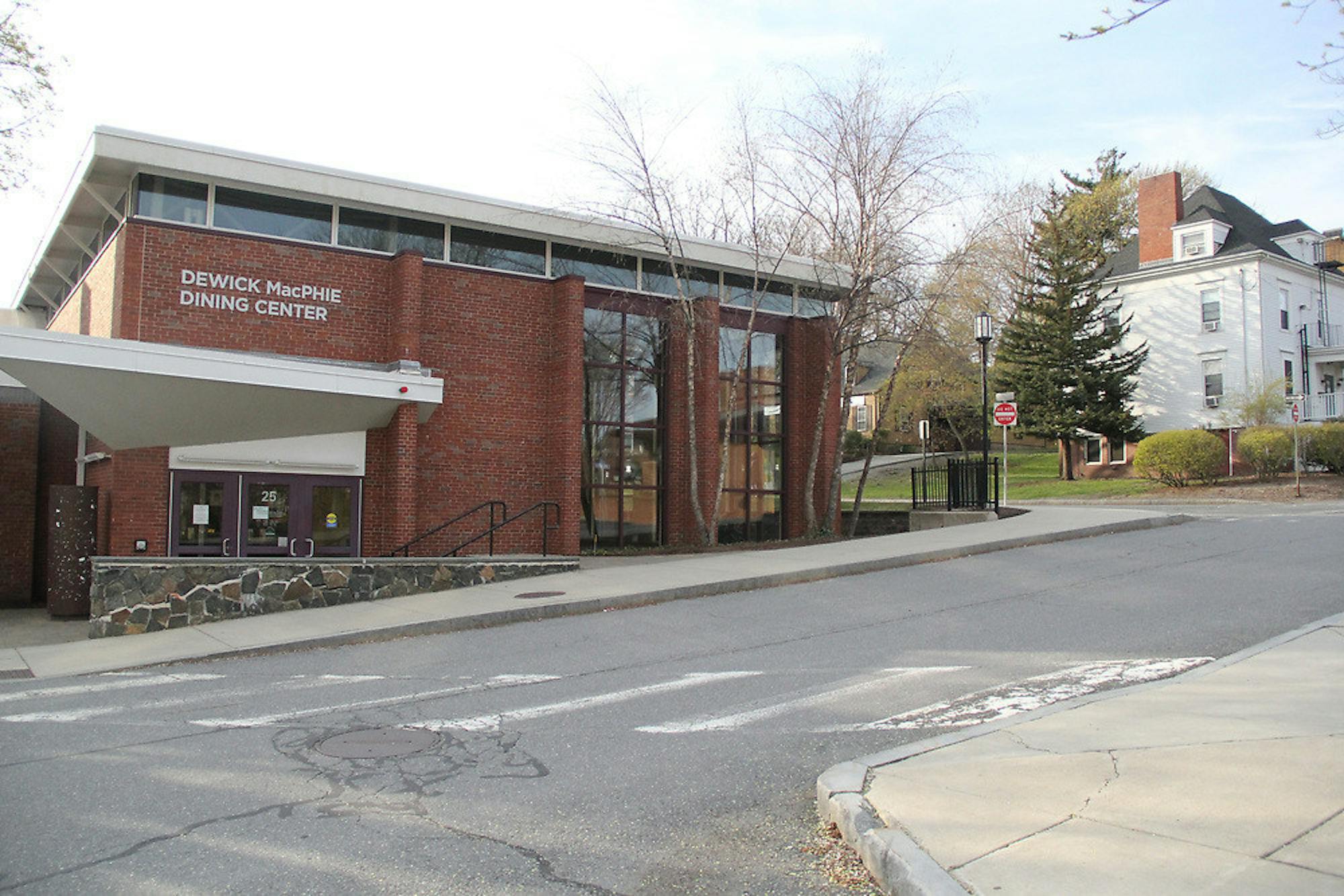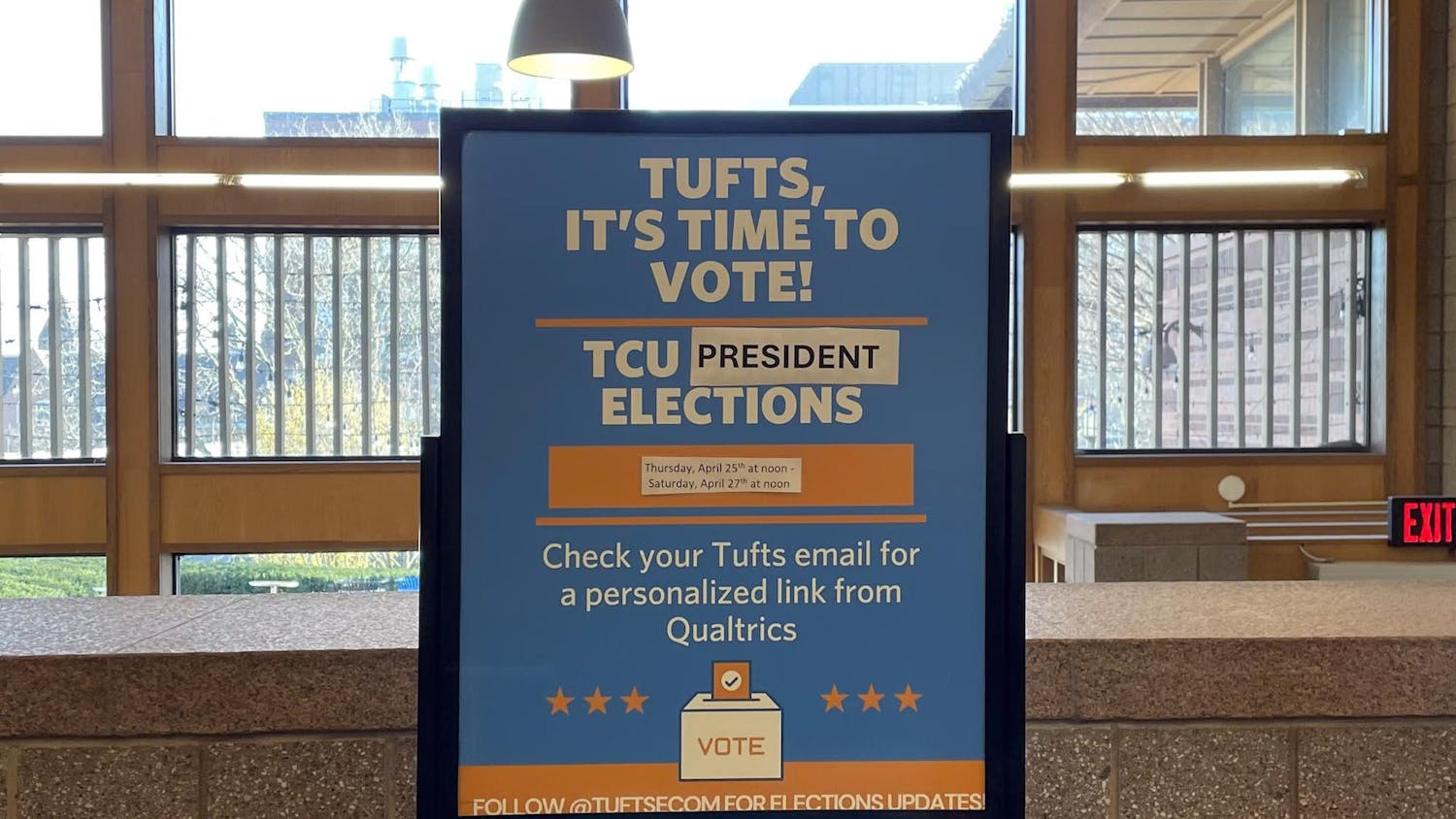The university plans to reduce summer dining staff to about 20, a third of the normal total, and remains vague on plans for benefits payments in talks to replace an agreement thatguaranteed full pay to workers that expired on May 9, officials from UNITE Here Local 26, which represents the workers, said.
Local 26 Executive Vice President Mike Kramer and Tufts’ shop stewards met with David Ossam, Tufts' director of labor relations, and Patti Klos, Tufts’ director of dining services, as well as other top managementon April 22 and May 6 to discuss the agreement.
Tricia O’Brien, a retail division shop steward who works in Mugar Café, said that the university is refusing to continue paying wages to the 60 workers, the number who normally work over the summer.
“What we wanted was that everybody that worked last summer, the amount of people that worked, pay them for the summer,” she said.
The union also wants Tufts to cycle the workers, as they are doing currently, so that all 60 of the employees they want to see paid are able to work. Instead, the university intends to put 20 slots up to bid by seniority, according to O’Brien.
Patrick Collins, Tufts' executive director of public relations, declined to comment on the ongoing negotiations, but confirmed the university's intentions to cut the number of positions down to 20.
“The university appreciates the contributions of all of its employees whose work enables students, faculty and staff to study, learn and work at Tufts,” he wrote in an email.
In a May 1 email appeal to local elected officials, O’Brien, speaking on behalf of unionized workers, criticized the university, accusing them of “trying to initiate a union busting strategy so they can go back in time and treat their dining workers as the unseen and unheard.”
“Management has used stalling practices and have basically ignored any sincere requests that we have made,” O’Brien wrote in the email to the Daily.
Local officials and student activists have stepped up pressure on the administration over the issue in recent days.
Katjana Ballantyne, the Somerville city councilor who represents Ward 7 south and west of Tufts’ campus, wrote a letter calling on University President Anthony Monaco to accede to the workers’ proposals.
“As we move forward at this time I am requesting you extend your compassion and community spirit for your employees and aid the Tufts University Dining workers of your institution,” she wrote. “We are all in this together.”
On-campus activists have adapted their advocacy to the pandemic. Tufts Labor Coalition urged students to call or email senior administrators in a series of Facebook posts over the weekend of May 2, while Christine Tringale, an assistant sous chef at Hodgdon Dining and vocal advocate in the workers’ labor movement, put together a video message and social media campaign.
Local 26 also proposed that Tufts continue to pay into union health insurance and pension plans, give hazard pay to those who do work during the summer, pay out accumulated vacation time and allow workers who do not work to seek unemployment benefits.
Normally, workers who do not work during the summer are not eligible for unemployment benefits as they are still employed by the university. The union wants laid off workers to be able to seek these benefits.
The university has not yet given a definite response to these proposals at the two sides’ latest meeting, O’Brien said.
O’Brien criticized Monaco directly.
“[President] Larry Bacow at Harvard, he took a 25% pay cut. Why wouldn’t Monaco do that to save jobs and why [wouldn’t] top managers do that? That’s what happened at Harvard,” she said.
The university has beenburdened by the financial impacts of the coronavirus pandemic, with $15 million in losses projected for this fiscal year and as much as $50 million next fiscal year.
Collins said that the university has taken drastic steps to mitigate the financial fallout, like freezing hiring, salaries and capital projects, but still paid all dining workers in full through May 9 even though many did not work. The sharp rhetoric from the union is a dramatic reversal from March when workers praised Tufts for its decision to pay wages through the entirety of the spring semester and Local 26 touted the university as an example for other area universities.






